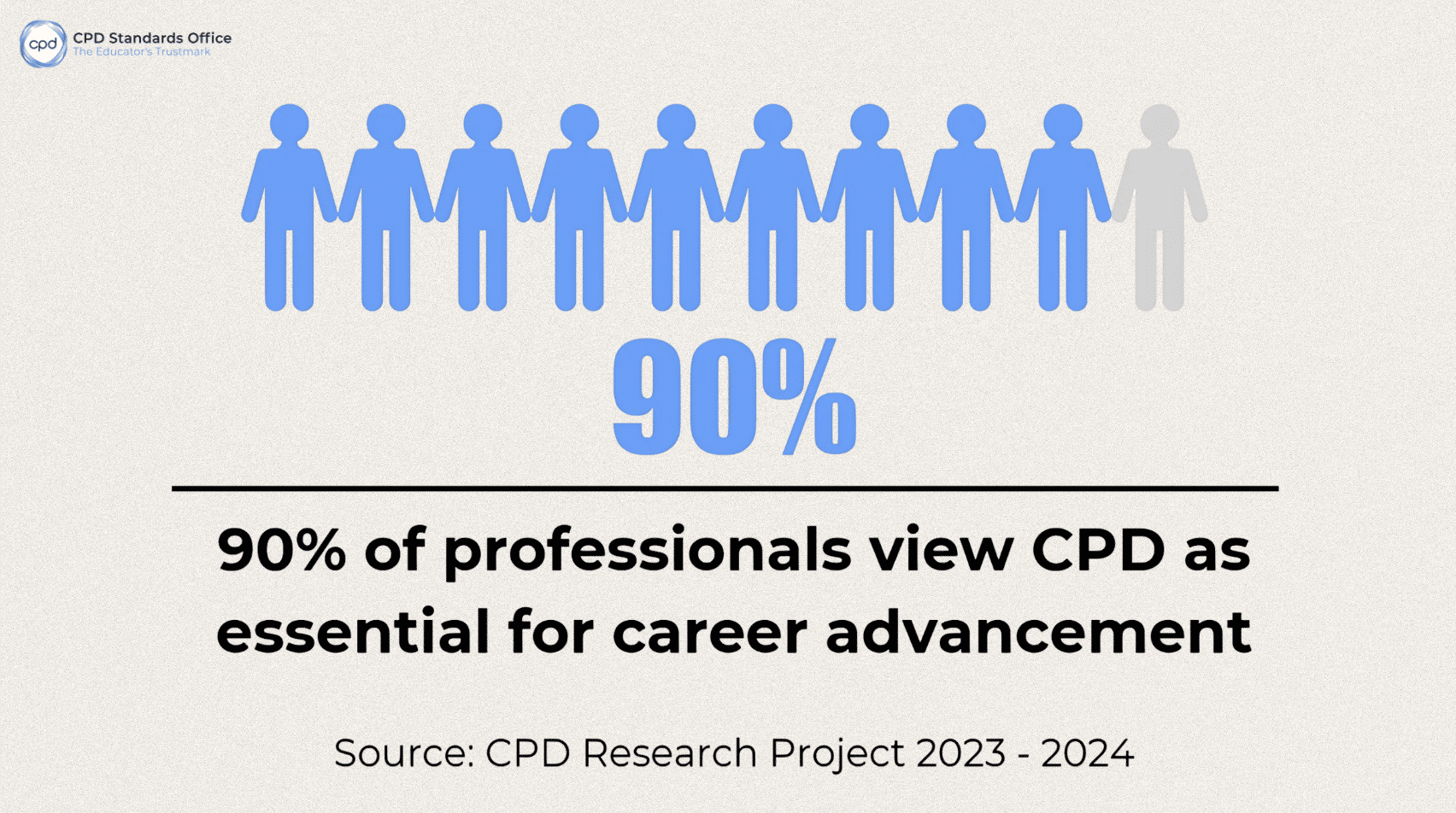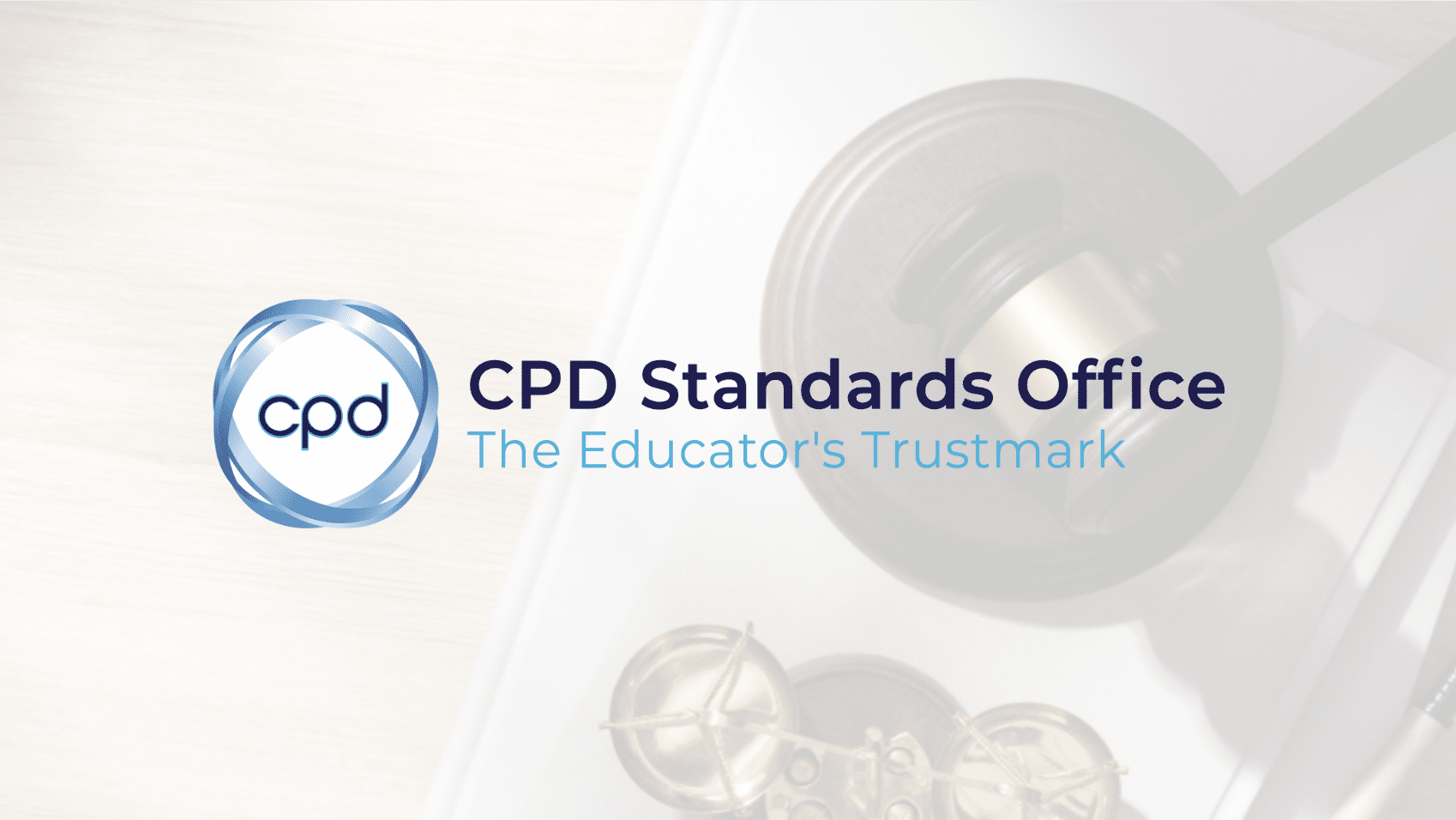Ever wondered how top professionals stay ahead of the game?
Continuing Professional Development (CPD) certification is your key to career success. It’s like having a fitness plan for your professional skills.
You keep learning, growing, and proving you’re serious about excellence.
Here’s the exciting part: CPD accreditation opens doors you didn’t know existed. Professionals in healthcare, law, and finance use it to show employers they’re committed to staying sharp.
Plus, CPD courses aren’t just boxes to tick. They’re opportunities to master new skills, network with peers, and unlock your true potential.
How Does CPD Accreditation Work?
Think of CPD accreditation as a quality stamp for professional training.
Training providers send their courses to official CPD bodies for review.
These experts check everything from content quality to learning outcomes. They make sure the training actually helps you grow.
The process is thorough but fair. CPD courses must have clear goals and proven results.
This means when you see that accreditation badge, you know you’re getting real value for your time and money.
Types of CPD Activities
Not all learning looks the same, and CPD recognizes this perfectly.
You can earn credits through hands-on workshops or by reading quietly at home. The beauty lies in finding what works best for your learning style and schedule.
| TYPE | DESCRIPTION | EXAMPLES |
|---|---|---|
| Structured CPD (Active Learning) |
Interactive and participation-based study | Training courses, workshops, seminars, conferences, eLearning programs |
| Reflective CPD (Passive Learning) |
Observational and consumption-based activities | Training videos, lectures, industry journals, and podcasts |
| Informal CPD (Self-Directed Learning) |
Self-initiated learning activities | Research projects, peer discussions, and experiential learning |
Interesting tidbit: Most professionals mix all three types throughout the year. Research shows that combining active participation with quiet reflection creates the strongest learning outcomes.
Importance of CPD Certification

CPD certification isn’t just nice to have anymore. It’s become essential for anyone serious about their professional future.
Here’s why smart professionals make it a priority.
1. Boost Your Career Prospects
CPD certification shows employers you’re invested in growth. It sets you apart from competitors who coast on old knowledge.
Hiring managers love seeing continuous learning on resumes. It signals that you adapt well to change and bring fresh ideas.
Many companies prefer candidates with active CPD accreditation as it lowers training costs and demonstrates initiative.
2. Stay Legally Compliant
Some professions require ongoing education by law. Healthcare workers, lawyers, and financial advisors must complete CPD courses to keep their licenses active.
Skip this requirement, and you could lose your right to practice. Smart professionals treat compliance as an opportunity rather than a chore.
They choose courses that genuinely improve their skills while meeting legal obligations.
3. Build Professional Credibility
CPD accreditation strengthens how colleagues and clients view your expertise. It shows you take your profession seriously and stay current with industry trends.
Clients trust professionals who invest in learning. Peers respect those who pursue excellence beyond the minimum requirements.
Your professional reputation grows stronger with each accredited course you complete.
Benefits of CPD Certification
CPD certification isn’t just about meeting requirements. It’s about unlocking real advantages that make your career soar.
- Stay sharp and relevant:CPD courses keep your skills fresh and industry-ready.
- Build valuable connections: Meet like-minded professionals and industry experts during training.
- Gain global recognition: Many CPD accreditation programs work across international borders.
- Boost job performance: Apply new knowledge immediately to excel in your current role.
- Open new career paths: Certified learning creates opportunities you never imagined.
The best part? These benefits compound over time. Each course you complete builds on the last, creating a powerful foundation for long-term success.
How to Obtain CPD Certification?

Getting your CPD certification is simpler than you might think.
Follow these clear steps and you’ll be on your way to professional growth in no time.
Step 1: Check Your Requirements
Start by finding out exactly what your profession needs. Contact your professional body or check their website for specific hour requirements.
Some fields need 20 hours annually, while others require 40. Your employer might have additional requirements, too.
Visit The CPD Register to find CPD requirements for different professions. Understanding these details upfront saves time and ensures you meet all necessary criteria for maintaining your professional standing.
Step 2: Choose Accredited Programs
Look for training providers with proper CPD accreditation stamps from recognized bodies like The CPD Certification Service or The CPD Standards Office.
Not all courses count toward your requirements. Check the provider’s credentials and read course descriptions carefully. Focus on programs that align with your career goals and skill gaps.
Quality CPD courses will clearly state their accreditation status and learning outcomes on their websites.
Step 3: Engage Actively in Learning
Simply attending isn’t enough for most programs. Participate in discussions, complete assignments, and ask questions during sessions.
Take notes and engage with fellow learners. Many courses include assessments or practical exercises that test your understanding. For healthcare professionals, visit HCPC CPD requirements for specific guidance.
Active participation not only helps you pass but also ensures you actually gain valuable skills from the experience.
Step 4: Complete All Assessments
Most CPD courses include quizzes, projects, or final exams. These aren’t just formalities. They prove you’ve absorbed the material and can apply it practically.
Prepare thoroughly and treat assessments seriously. Some programs allow retakes if you don’t pass initially.
Remember that completing assessments successfully is usually required before you can receive your official certification.
Step 5: Collect Your Certificate
Once you’ve successfully completed everything, you’ll receive an official CPD certificate. Download digital copies and request physical certificates, if needed.
Add these credentials to your professional portfolio, LinkedIn profile, and resume immediately. Keep detailed records of all your CPD activities using tools from The CPD Group.
Many professionals create a learning log to track their ongoing development experience.
CPD Points and Hours Explained
Understanding how CPD gets measured can feel confusing at first. Some organizations use points while others count hours.
Most CPD courses use two main tracking methods:
- CPD points reward activity complexity and time investment. A challenging workshop might earn 5 points, while reading an article gives just 1 point.
- CPD hours work differently by tracking actual learning time. Spend 3 hours in training and earn exactly 3 CPD accreditation hours.
The good news is that most systems keep it simple.
One CPD point usually equals one CPD hour, making it easy to switch between different programs and still meet your annual requirements.
Global Recognition of CPD Certification
CPD accreditation isn’t just valuable locally. It opens doors worldwide.
Many accreditation bodies follow international standards, making your certification valuable across borders. This means CPD courses you complete in one country often count elsewhere.
Smart professionals love this flexibility. Your learning investment travels with you, making international career moves smoother.
Employers globally recognize CPD as proof of dedication to growth, giving you a competitive edge wherever your career takes you
The Bottom Line
Your professional development never truly ends, and CPD certification keeps you moving forward.
It’s more than just meeting requirements. It’s about building lasting expertise that employers value and competitors respect.
CPD accreditation proves you’re serious about excellence, while CPD courses give you practical skills for real-world challenges.
Ready to take the next step?
Research accredited programs in your field today. Choose courses that match your career goals and start building the future you want.












